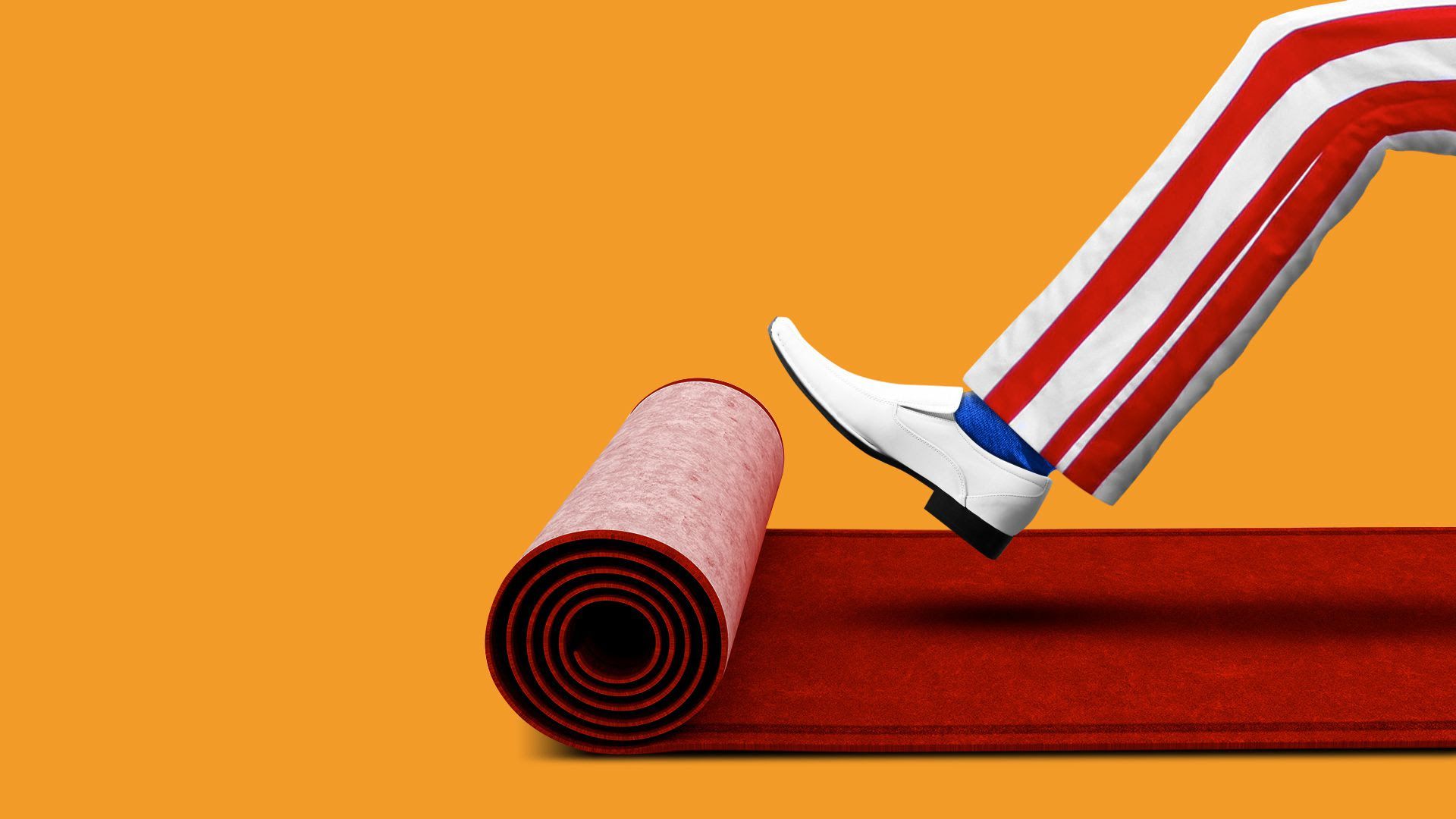Why the U.S. is so friendly to monopolies
Add Axios as your preferred source to
see more of our stories on Google.

Illustration: Aïda Amer/Axios
The U.S. is the best major country in the world to be a giant private-sector monopoly. That's one message sent by Judge James Boasberg of the Federal District Court in D.C. on Monday, when he tossed out an FTC antitrust lawsuit against Facebook.
Why it matters: There are deep structural reasons America's laws-based antitrust system finds it incredibly hard to hobble monopolists, especially ones that give their products away free.
- Monopolistic behavior has to be found to be illegal by a judge in a court hearing — and there's a very good chance that the judge will subscribe to Robert Bork's antitrust doctrine, under which consumer harm needs to be shown in the form of higher consumer prices.
What they're saying: "Numerous hard-wired differences between the European and American enforcement regimes make it very difficult for U.S. antitrust enforcement agencies to emulate their EU counterparts," wrote antitrust experts Gregory Werden and Luke Froeb in an article in 2019.
- In 10 different areas, they found it much easier to crack down on large monopolies in Europe than in the U.S.
Be smart: The Chinese government finds it easier still. A single request from the Chinese Communist Party will normally get it exactly what it wants.
The big picture: European antitrust measures are decided by politicians; in the U.S. it's up to judges.
- Antitrust is seen in Europe as regulation — an ongoing effort by the government — rather than enforcement, which first requires a finding of illegal behavior.
Our thought bubble, from Axios' Sam Ro: U.S. regulators have a poor track record of successfully going after big companies for alleged antitrust violations, and the markets get this. On the other hand, it's usually more serious when the E.U. probes a company or China threatens a ban. Foreign regulators seem to be far more effective at bringing the hammer down on U.S. companies.
The bottom line: The American system is largely built on the premise that large corporations are a good and healthy part of society unless proved otherwise. Europe — and even China — are much less likely to believe that.
